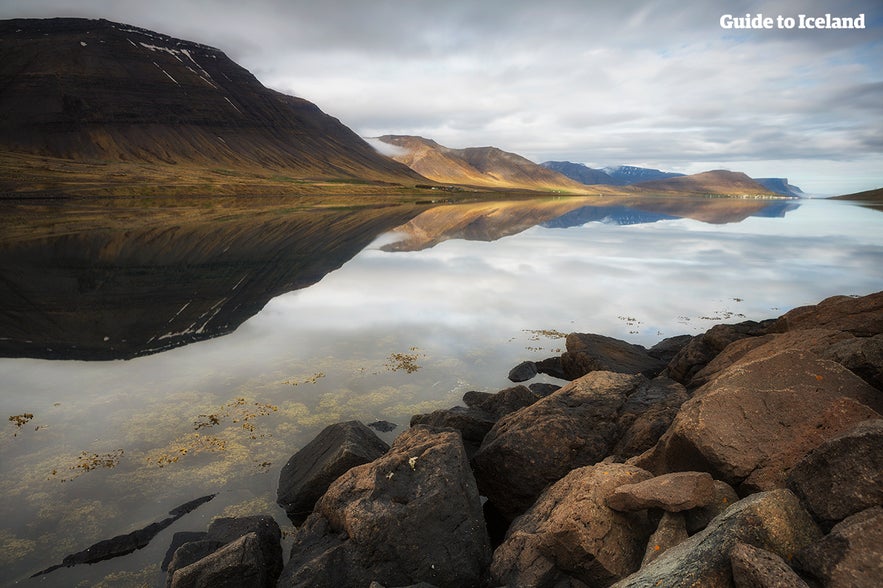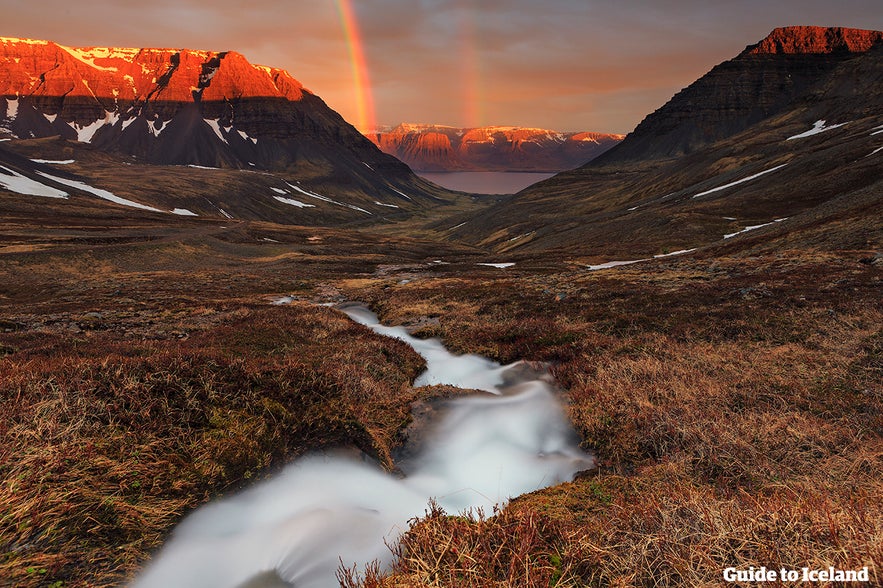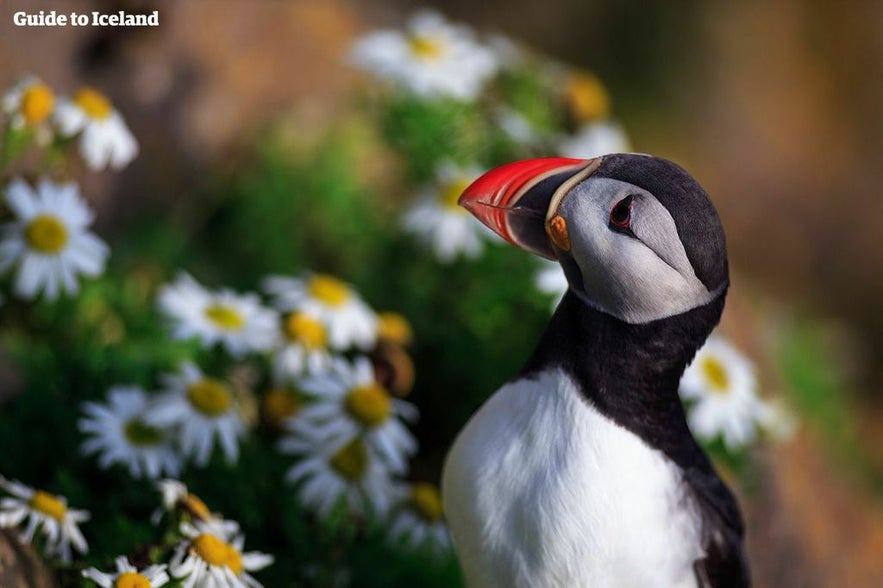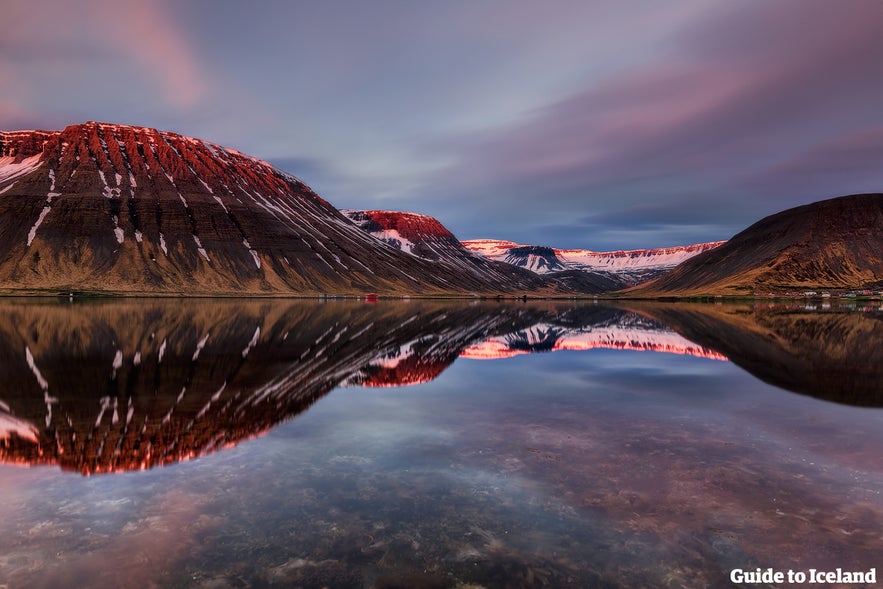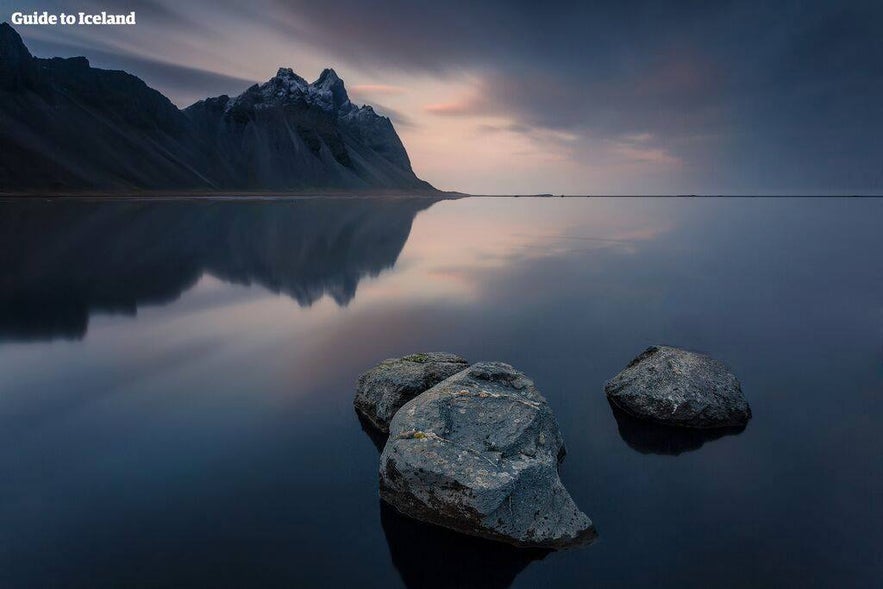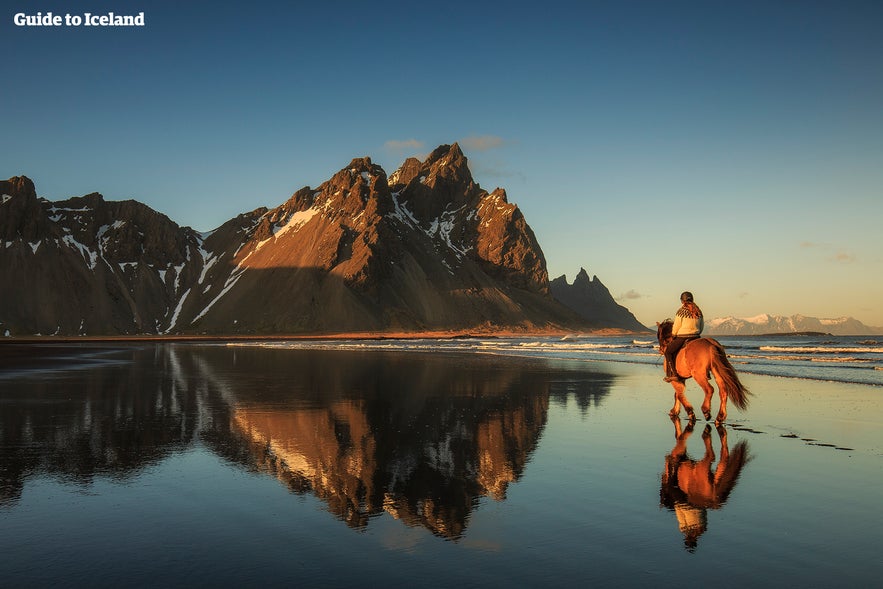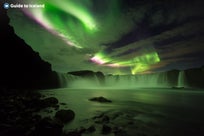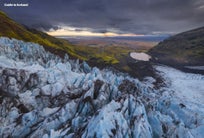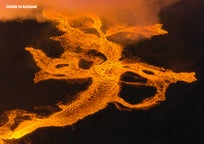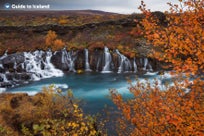
Fjords in Iceland

How many fjords are there in Iceland? What is a fjord? What’s special about the Icelandic fjords? Read on and find out all you need to know about Iceland's wonderful fjords.
There are a total of 109 fjords in Iceland. These are mainly divided between the East of Iceland and the Westfjords. A few fjords are found in the North of the country, and a couple more are located around Reykjavík in the West. The South of the country, however, is one long coastline, which is smooth and doesn’t have any fjords.
The best way to explore all these beautiful fjords, by far, is by hopping in a car and going on a self-drive tour around the island, where you can scout the ring road and control the pace of your journey with the assistance of a personalised itinerary.
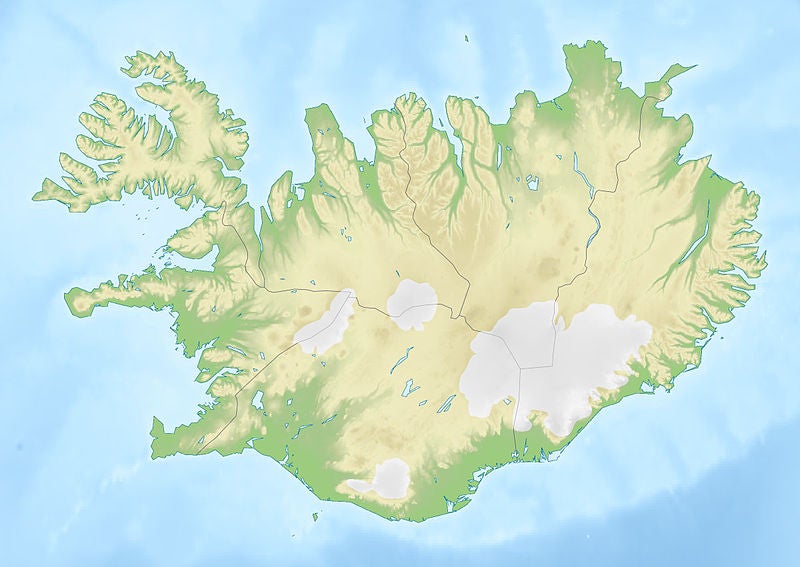
What Is a Fjord?
A fjord is a U-shaped inlet of land, carved out or formed by a glacier tongue. Fjords are typically long, deep and narrow, and similar to valleys except for being filled with sea water. You won't find any fjords with freshwater in Iceland, as all Icelandic fjords are connected to the ocean.
- Read more about the Nature of Iceland
In fact, any freshwater 'fjords' (that can be found in Norway and New Zealand) have been given the wrong name and are, in fact, 'fjord lakes'—lakes formed by fjords that have been landlocked.
- See also: Lakes in Iceland
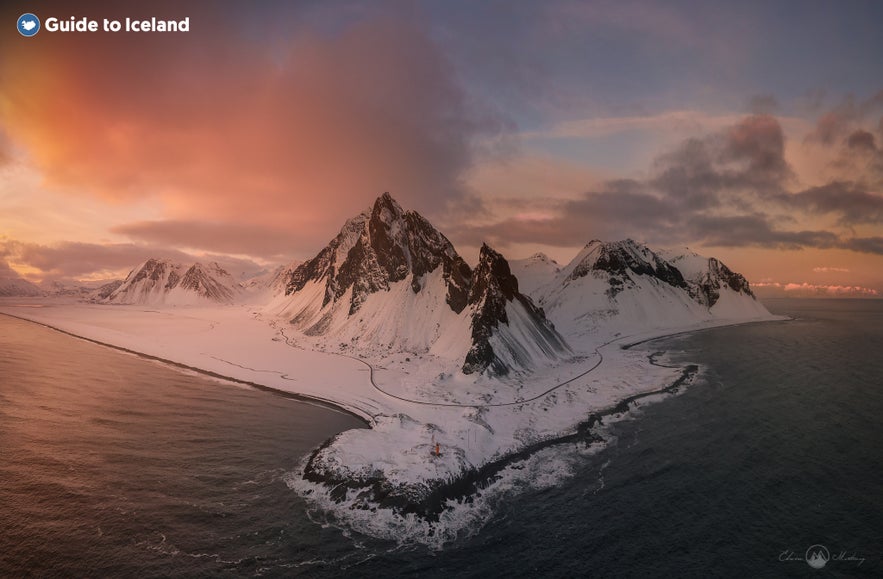
On either side of a fjord, you'll usually find a mountain. Typically, you’ll find tall mountains or glaciers at the inner, shallower part of a fjord, called 'the sea bottom'. There you'll find great water sources and you can often see small rivulets trickle down the mountainsides—or even impressive waterfalls.
- See also: The Magical Westfjords
The wider part of the fjord, the one that connects to the sea, is called its mouth. If the strip of the water is wider than its length, then it no longer classifies as a fjord—but a bay or a cove.
The myriad of fjords on this volcanic island offer breathtaking scenery, with impressive mountains on each side, often mirrored in calm waters. In Norway, you can expect to see the mountainsides covered with trees, but Iceland doesn't boast much vegetation, meaning you're more likely to see a number of waterfalls, steep hillsides dotted with moss, and colourful grounds.
Fjords near Reykjavik
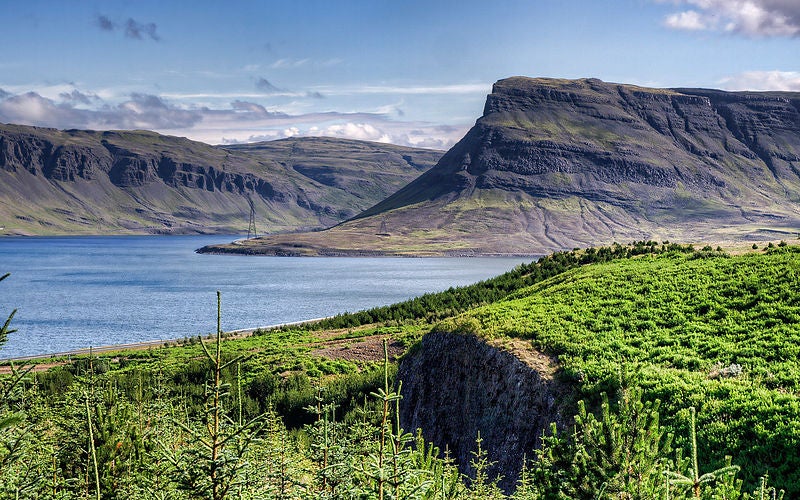
Just north of Reykjavík are the two big fjords, Hvalfjörður (meaning 'whale fjord') and Borgarfjörður (meaning 'fortress fjord').
Hvalfjörður is 30 kilometers long, and it took so long to drive through it that a tunnel was constructed in 1998, shortening the distance between Reykjavík and Akureyri by a whole hour; driving the tunnel takes just 7 minutes, but it's still worthwhile to take the time to explore the beauty of Hvalfjörður, escaping the crowds that head through the tunnel.
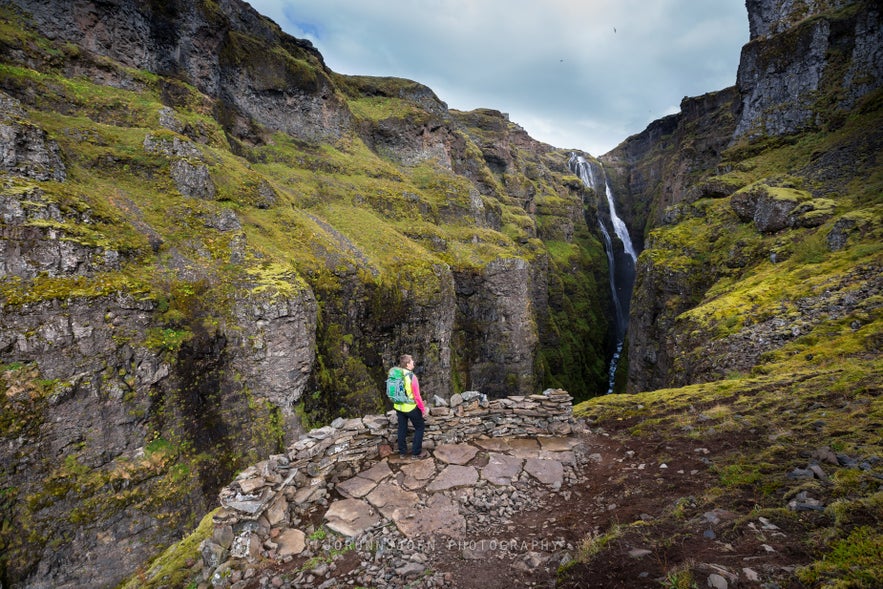
At the bottom of Hvalfjörður, you can find Iceland’s second-tallest waterfalls, Glymur. The fjord is just as stunning during wintertime, and very accessible all year round. The fjord is also a popular spot for sea-kayaking tours.
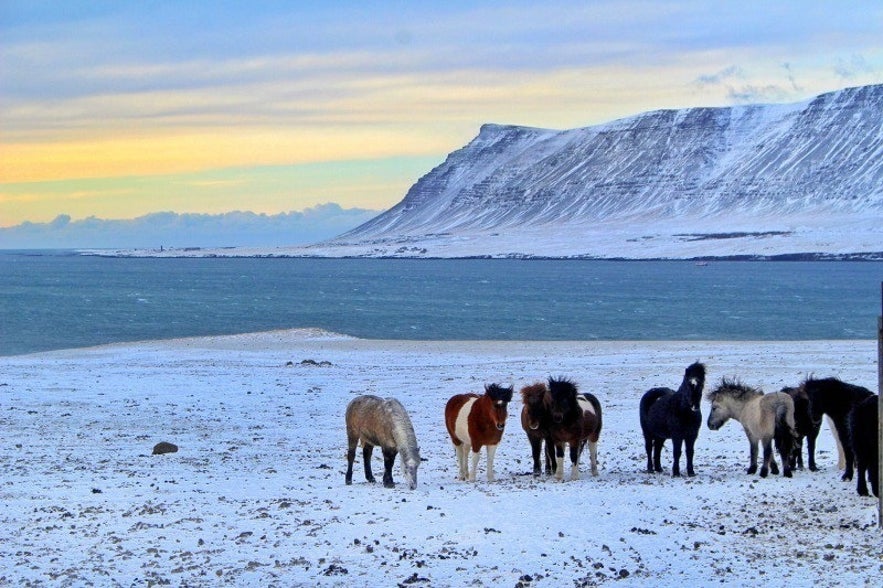
Borgarfjörður is home to the town Borgarnes, a popular stop for snacks and necessities if you are driving between Reykjavík and Akureyri. It’s a very cute little town as well, so it’s worth checking out. Just make sure you don't confuse Borgarfjörður with Borgarfjörður Eystri—that's on the other side of the country!
- See also: Weather in Iceland & Best Time to Visit
The Westfjords of Iceland
The Westfjords are Iceland’s most remote area. The Ring-Road actually bypasses the Westfjords, since, beautiful as they are, they can be tedious to drive. Some of the roads there are gravel roads, and many of these become impassable during wintertime, as they go over high mountains. The nature of this wild fjord-land is, however, nothing less than breathtaking, so it’s well worth the trip. Find your place to stay in this remote region and book accommodation in the Westfjords ahead of time.
- See also: The Ultimate Guide to Driving in Iceland
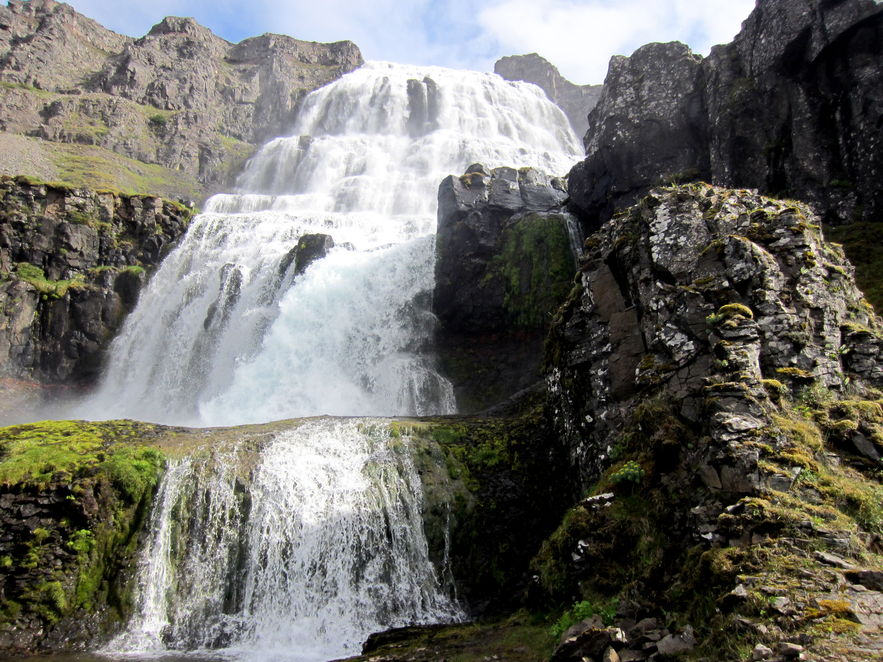
You can, for example, see the stunning Dynjandi waterfall, as it cascades down into Arnarfjörður (Eagle Fjord), or the impressive mountains and fjords of the Hornstrandir nature reserve, where the mountains jut seawards with steep cliffs.
Another impressive location with sheer cliffs jutting out to sea is the more accessible Látrabjarg, where you can admire thousands of birds, such as the North Atlantic puffin, and have a view over the wide Breiðafjörður (Wide Fjord) all the way to the Snæfellsnes Peninsula.
The largest fjord in the Westfjords, and the rest of the country, is Ísafjarðardjúp (Ice Fjord's Deep), that splits into many smaller fjords. The biggest town is the picturesque Ísafjörður, named after its fjord.
- See also: Where to Find Puffins in Iceland
The mountains in the Westfjords are old and weathered, having carried snow and ice for millions of years. As a result, you’ll find many table-top mountains in the Westfjords, that look incredible when mirrored in the still sea.
- See also: The Westfjords of Iceland
- See also: Photography in Iceland
The East Fjords of Iceland
In contrast to the flat-topped mountains in the Westfjords, the mountains in the East are younger, harsher, and more rugged. The fjords of the East are, therefore, surrounded by much more dramatic mountains than the ones in the west. If you plant to stay in this beautiful region, make sure to book accommodations in the Eastfjords.
There are some spectacular hiking routes in this area, you can, for instance, hike from Borgarfjörður Eystri, or 'East Fortress Fjord', south to Loðmundarfjörður. This hiking area is called Víknaslóðir (Bay Paths), and is on the very top of our 20 Hidden Gems in Iceland list!
- See also: Hiking in Iceland
- See also: Camping in Iceland | All You Need to Know
Make sure you stop at the spectacular Stórurð, with its azure blue-coloured waters and otherworldly surroundings.
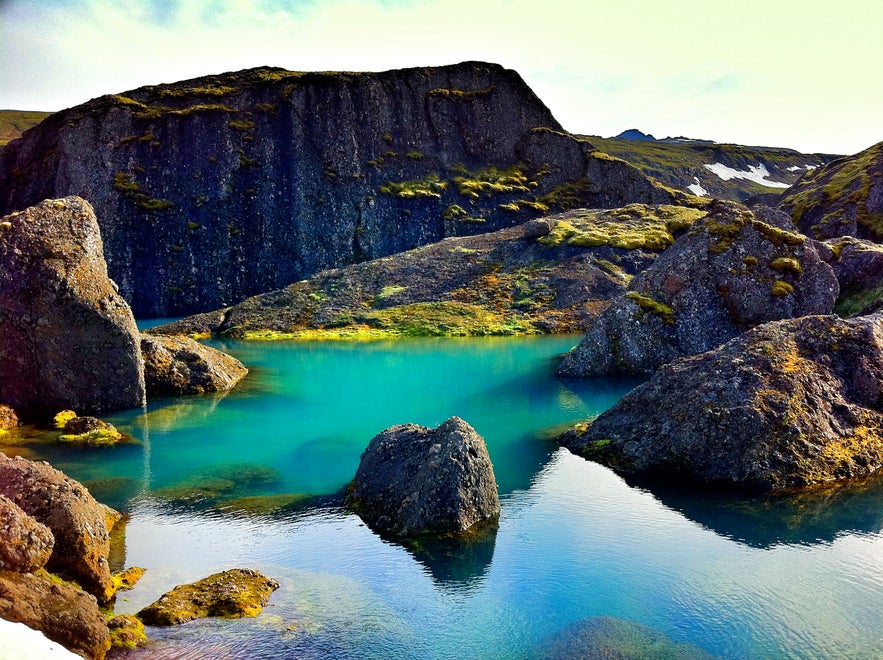
Another great hike is to the stunning Hengifoss waterfall, that sits close to the town of Egilsstaðir, sometimes called the Capital of the East.
Or if you enjoy horseback riding, and would like to get acquainted with a member of the species of the lovable Icelandic horse, you might want to join this 7 Day Trip of the Deserted Fjords in East Iceland.
South of Loðmundarfjörður, you’ll find a number of stunning fjords, all battling to be more picturesque than the other. These include (but are not limited to) Seyðisfjörður (by many considered Iceland's most beautiful), Mjóifjörður, Eskifjörður, Reyðarfjörður, Fáskrúðsfjörður, Stöðvarfjörður, Berufjörður, Hamarsfjörður and Álftafjörður - as well as a few smaller ones.
- See also: What to Pack for Travel in Iceland
And north of Borgarfjörður Eystri, you’ll find Vopnafjörður, home to one of Iceland's best swimming pools. It's safe to say that fjords are of an abundance in the East of Iceland, along with an array of picturesque and friendly villages to visit.
Fjords in North Iceland
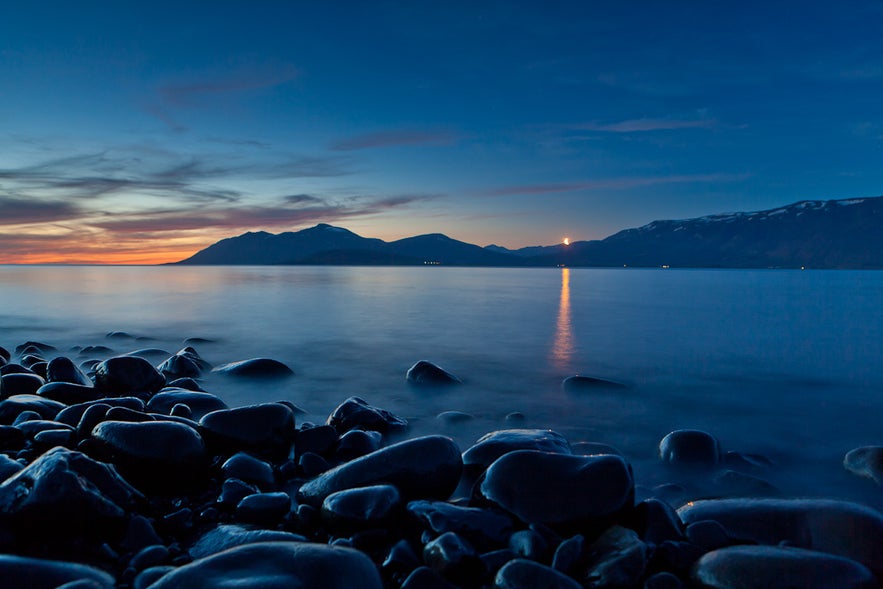
There are two big fjords, and a number of smaller ones, in north Iceland. The bigger ones are called Skagafjörður and Eyjafjörður, meaning 'Spit Fjord' and 'Island Fjord'.
Akureyri, the capital of the North, is situated in Eyjafjörður (Island Fjord). This is a large fjord, containing the idyllic island Hrísey, frequently visited by travelling cruise ships. Hrísey is often referred to as the pearl of Eyjafjörður, and it is possible to take a ferry there to visit it.
- See also: Top 10 Things to Do in Akureyri
Skagafjörður also contains islands; in fact, there are three of them: Málmey, Drangey and Lundey. They are, however, smaller than Hrísey and uninhabited. Between the two fjords is the mountain pass Tröllaskagi (Troll Peninsula), where you can find the picturesque Siglufjörður village, in Siglufjörður fjord ('Sailing Fjord').
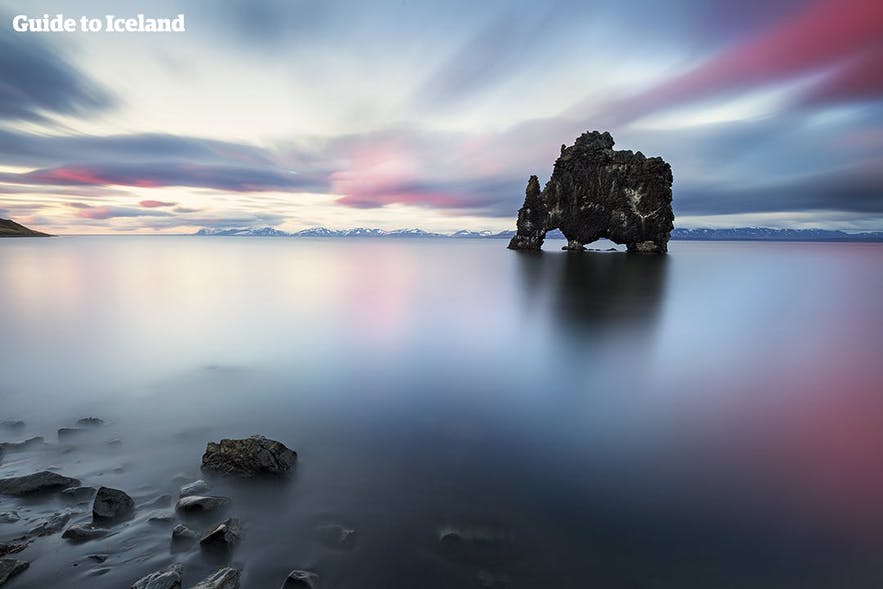
Siglufjörður used to be Iceland's 'herring capital'—but is now more famous for being the backdrop location for the Icelandic crime series 'Trapped'. Still, if you find yourself there, you'd be well advised to pay a visit to the award-winning Herring Era Museum.
We urge you to go and explore all of Iceland's wonderful and unique fjords, and then return to tell us which one is your favourite!
Andre spændende artikler

18 ting at lave og steder at besøge på Island
Find de bedste ting at lave på Island og læs om, hvor du skal tage hen, og hvad du skal se. Uanset om det er naturlige vidundere, kulturelle oplevelser eller skjulte perler; Læs videre og lær alt om...Læs mereDen ultimative guide til Island i marts
Find ud af alt, hvad du behøver at vide, om at besøge Island i marts. Lær mere om, hvilke aktiviteter der er tilgængelige i løbet af denne tid, såsom isgrotter og at se nordlyset. Få nogle ekspertti...Læs mereDen bedste guide til hvalsafari på Island
Opdag hvorfor hvalsafari på Island er blevet en populær aktivitet i løbet af de sidste to årtier. Hvornår er det bedste tidspunkt at se hvaler på Island? Hvor kan du tage på hvalsafari? Læs videre o...Læs mere

Download Islands største rejsemarkedsplads til din telefon for at administrere hele din rejse på ét sted
Scan denne QR-kode med dit telefonkamera, og tryk på det link, der vises, for at lægge Islands største rejsemarkedsplads i lommen. Indtast dit telefonnummer eller din e-mailadresse for at modtage en sms eller en e-mail med downloadlinket.
